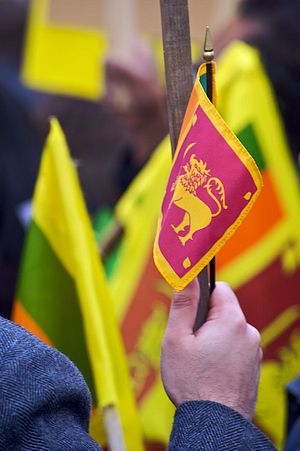The International Truth and Justice Project (ITJP) has recently released another valuable report. This time the organization takes a closer look at Sri Lanka’s Special Task Force:
This report reveals why members of the Special Task Force paramilitary unit of the Sri Lankan police should not be sent abroad as UN peacekeepers without stringent vetting and screening. This unit has from its inception in 1983 been steeped in allegations of human rights violations, including abductions, torture, killings, and extrajudicial executions. The violations described in this report speak to an amoral attitude to the taking of life and to human dignity, and where dehumanization has become institutionalized. Shockingly, those responsible for the violations have been rewarded post-war by successive governments in Sri Lanka.
Interestingly, the report has been “based primarily on insider witnesses, interviewed in four different countries by multiple investigators.”
This is another reminder that Sri Lanka’s security sector is in dire need of reform.
The topic is unlikely to get much attention from the island nation’s Colombo-based media. Government officials will probably do their best to ignore the report. Some may even deny its contents.
Nonetheless, international actors have a role to play.
“Sri Lanka committed in 2015 to vetting its public and security officials but failed utterly to take any steps in this regard. This makes it all the more important that the international community takes the lead and ensures peacekeepers, diplomats, and other internationally deployed officials from Sri Lanka are now thoroughly screened for their human rights past,” ITJP notes.
“This means putting resources behind this initiative. For the victims, vetting is a long way from justice but it sends a message of hope that there will one day be a reckoning for the past.”
Hopefully, Sri Lanka watchers will give ITJP’S latest contribution – including the sensible recommendations and proposed vetting criteria – the attention it deserves.

































